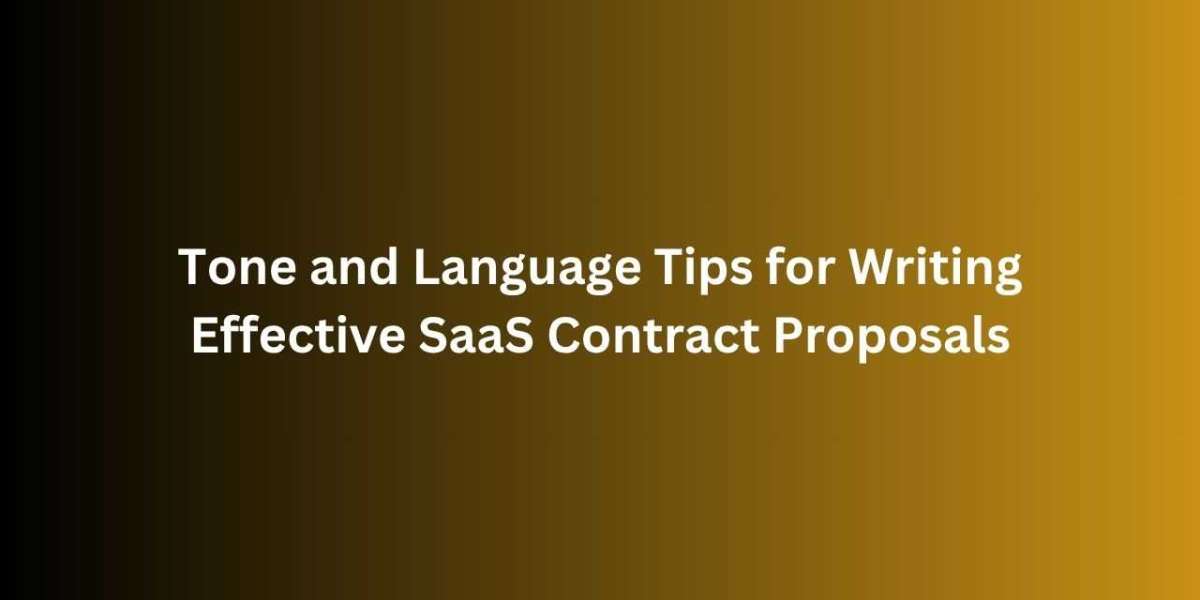In the competitive landscape of Software as a Service, winning a deal depends not only on your product’s features but also on how clearly and professionally you communicate your offering. A well-crafted SaaS Contract Proposal can make the difference between a lost opportunity and a signed contract. Beyond the legal terms and pricing details, the tone and language you use in your proposal shape how clients perceive your company’s professionalism, reliability, and understanding of their needs.
This blog explores essential tone and language tips for writing effective SaaS contract proposals that resonate with clients, build trust, and help close deals faster.
Why Tone and Language Matter in SaaS Contract Proposals
A SaaS contract proposal is both a sales document and a legal agreement. Balancing these two functions requires careful attention to tone and language. Use too much legal jargon, and your proposal becomes confusing or intimidating. Use overly casual language, and you risk appearing unprofessional or unreliable.
The right tone and clear, client-focused language can:
Build credibility and professionalism
Make complex technical or legal information accessible
Reduce client objections caused by misunderstandings
Highlight your company’s commitment to the client’s success
Foster a collaborative rather than adversarial mindset
1. Use Clear and Simple Language
Clients want to understand exactly what they are agreeing to. Avoid complex legalese and industry jargon that may confuse non-expert readers. Instead, use plain language to explain:
Service features and deliverables
Pricing structures and payment terms
Implementation timelines
Support levels and responsibilities
When legal terms are necessary, accompany them with brief, clear explanations. This transparency reduces the chance of misunderstandings and builds client confidence.
2. Adopt a Professional Yet Approachable Tone
Your tone should reflect professionalism while remaining approachable and client-centered. Avoid overly formal or stiff language that feels impersonal. At the same time, stay away from slang or overly casual phrasing.
Striking the right balance shows that you take the business relationship seriously but also want to work collaboratively. For example, instead of saying “The client shall be liable for...,” say “You will be responsible for...”.
3. Be Positive and Solution-Oriented
Focus on what your SaaS solution can do for the client rather than limitations or restrictions. Frame your proposal around solving their pain points and adding value. Use active voice and positive language.
For instance, say “Our software will enable your team to automate workflows and reduce manual errors,” instead of “Our software does not support manual data entry.”
This optimistic approach positions your company as a proactive partner invested in the client’s success.
4. Tailor Language to Your Audience
Not all clients have the same level of technical expertise or familiarity with SaaS contracts. Customize your language based on who will read the proposal.
For technical buyers, you can include specific product features and integration details.
For business decision-makers, emphasize ROI, cost savings, and business impact.
For legal teams, ensure clear and accurate legal language in the relevant sections.
Using client-appropriate language shows empathy and professionalism, helping your message resonate more effectively.
5. Use Consistent Terminology
Consistency reduces confusion. Use the same terms throughout your SaaS Contract Proposal when referring to key concepts such as “User,” “Subscription,” “Data,” or “Service Level Agreement.” Avoid switching between synonyms or abbreviations without clear definitions.
If your proposal contains defined terms, ensure they are highlighted or capitalized consistently. This attention to detail reflects well on your professionalism.
6. Break Up Text for Readability
Long blocks of text can overwhelm readers and obscure important points. Use headings, bullet points, numbered lists, and short paragraphs to organize content clearly.
For example, present pricing options as a table or list rather than dense paragraphs. Use bold or italics sparingly to highlight key terms or sections but avoid overdoing it.
A clean, easy-to-read proposal encourages clients to engage with the content rather than skim or skip critical information.
7. Be Transparent About Terms and Conditions
Clients appreciate honesty and clarity. Avoid vague statements like “standard terms apply” without specifying what those are. Clearly explain important terms such as:
Payment schedules
Renewal and cancellation policies
Data privacy and security measures
Support response times
This transparency helps set realistic expectations and reduces post-signature disputes.
8. Use Active Voice
Active voice makes sentences more direct and easier to understand. For example, instead of “Support requests will be handled by our team within 24 hours,” say “Our team will handle your support requests within 24 hours.”
Active voice clarifies responsibility and action, making your proposal more confident and reader-friendly.
9. Include a Call to Action with Polite Language
End your SaaS Contract Proposal with a clear call to action, inviting the client to take the next step. Use polite and encouraging language such as:
“We look forward to partnering with you.”
“Please reach out if you have any questions.”
“We are excited to help you get started.”
A respectful and positive closing reinforces professionalism and openness.
10. Proofread for Grammar and Tone
Before sending, review your proposal carefully for grammar, spelling, and tone consistency. Typos or awkward phrasing can undermine your credibility.
Consider having a colleague or professional editor review the document. Reading it aloud can also help catch unclear or clunky sentences.
Final Thoughts
Crafting an effective SaaS Contract Proposal is as much about tone and language as it is about legal terms and pricing. Clear, client-focused, and professionally warm language helps bridge the gap between technical complexity and business value, building trust and encouraging positive decision-making.
When you combine accurate legal content with approachable, tailored communication, your proposals not only inform but also inspire confidence. This can lead to faster approvals, smoother negotiations, and stronger long-term client relationships.
Next time you prepare a SaaS Contract Proposal, take a moment to review your tone and language. Your words are powerful tools that can open doors and seal deals. Use them wisely.
Read more: https://doomelang.com/read-blog/123641



